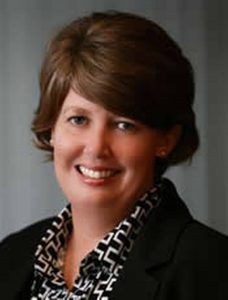
City of Folsom and Folsom Chamber Campaign To Fight Labor Shortage
Folsolm is asking teens, retirees, stay-at-home parents to work 20 hours each week to help alleviate labor shortage
By Evan Symon, November 19, 2021 12:42 pm

A new joint Folsom-Folsom Chamber of Commerce campaign to alleviate the labor shortage by appealing to retirees, stay-at-home parents, and teenagers received national attention this week due to the unique strategy of the program, with many remaining unsure of if it can bring long-term success to businesses in the Sacramento County city.
Folsom, a city of around 82,000 people that has grown by 10,000 people in the last ten years largely due to those fleeing the Bay Area for cheaper places to live, has been hit especially hard by the labor crunch. With a growing population, the city has had an above average number of new businesses open in the city in the past several years. Now, with a labor shortage caused by Americans changing work habits post-pandemic and yet another influx of businesses opening this year due to an end of the lockdown and many COVID-19 restrictions, the situation has only grown more dire in Folsom and other cities currently experiencing continued population growth in California.
To battle the shortage, Folsom and the Folsom Chamber of Commerce specifically asked local retirees, teenage students, and stay-at-home parents to work 20 hours a week for the next six months while the market readjusts and to help avoid an even bigger labor crunch due to the holiday season approaching. While it first seemed odd several weeks ago, the program is starting to receive national attention, with other cities following the same model.
“We figured we needed kind of a World War II type of campaign a combination of Uncle Sam saying ‘I Want You,’ and Rosie the Riveter saying ‘We Can Do It,'” said Vice Mayor Sarah Aquino at a press conference on Thursday. “The idea is to encourage retirees, students, stay-at-home moms and dads, and anyone who is reliable and can spare about 20 hours per week to help fill some of these positions, at least temporarily, as a method of helping Folsom businesses through the sluggish post-pandemic economy. If they can get out there and help these businesses fill these positions, it helps the businesses while also helping the city of Folsom.”
Aquino herself is leading by example by working part-time in a local restaurant.
“I’m actually having a lot of fun, I have no restaurant experience,” added Aquino. “I said hey, I don’t have any restaurant experience but I’m a hard worker and a fast learner and if you could use my help, I will step in.”
The local Chamber of Commerce noted that this was only a short-term solution for the problem and that businesses hope to be on a better labor footing by spring.
“Our hope is to bridge this gap,” explained Folsom Chamber of Commerce CEO Joe Gagliardi in a CBS interview. “It’s really a short-term solution where people who have time and are committed to the community want to help. We are not talking about people that are working for free, we are talking about people who have time on their hands that they might be able to allocate that to some of our businesses.”
The Folsom labor shortage plan
However, despite early signs of success in the program, many labor experts say that the Folsom plan will likely not be sustainable for very long.
“The people who they are targeting, to work out of a sense of civic duty, are some of the least likely to want to do it,” said Sandy Allerton, a former labor union leader who now advises cities on attracting workers, to the Globe on Friday. “First there are teenagers. Now, these types of low-paying jobs used to be their bread and butter.”
“While many still work in them now, it has not been the same since before the Great Recession over a decade ago. When many adults were out of work and retirees didn’t retire, they boxed out teens from working, and this mistrust has been passed from Millennials to Gen Z. Both groups are also demanding better wages and not wanting to work in a hostile place, like at service jobs where they are yelled at customers. Contrary to popular belief, it’s not a lazy thing. Many honestly want to work and are finding online alternates to food service and retail, or are using the opportunity to explore possible career options by work part-time in trades or more desirable jobs. They are also being hired out fast, as teen employment hit its highest percentage since 1953 this year.”
“Then there are retirees. This one makes more sense, as many lost valuable working years during the Great Recession and need the cash, but the ones who need it due to the Great Recession or Pandemic are already there working, like teens. And, like teens, they are being highly desired this year, with many unretiring at record levels.”
“Finally there are the stay-at-home parents. They’ll probably be enticed with extra holiday money due to being in largely one income households, but even then we’re not looking at them staying for a full six months. They’ll be there through January when school starts up again. Then they’ll need specialized hours again due to the schedule of their kids, and a lot of businesses are just not letting people pick when they want to work still. They’re still on shift schedules, and many parents want flexibility.”
“Folsom has good intentions, but businesses need to be wiling to pay higher wages, offer better benefits, and allow workers to work when they want to. And a lot of businesses just don’t want to change or can’t change to meet these new post-COVID work demands. Most people fell in love with working at home or working their own hours or getting non-minimum wage pay during the pandemic. And they aren’t giving that up.”
For Folsom and other Californian cities looking for ways to bridge the labor gap, the focus on teens, retirees, and stay-at-home parents is showing progress for now. But many are holding off as they see just how long this can last, a a more-long term solution may be needed next year.
- Bill to Require Law Enforcement Disclosure if AI Was Used To Help Write Reports - August 7, 2025
- Gov. Newsom Files FOIA Request To ‘Expose True Cost’ Of L.A. Federal Troop Deployment for Anti-ICE Riots - August 6, 2025
- California Redistricting: How Newsom’s Plan Will Demolish Hard Fought GOP Gains - August 6, 2025





I think this article is a step in the right direction and commendable effort from the city of Folsom. Yet I find myself wondering who, where and how?
If someone is interested in this program, the article should include information on who is participating ( Hard to believe that ALL businesses are participating) a list of restaurants would help, where to go or how to attempt applying through a short- term and part time program would be a beneficial added information.
Vice Mayor Sarah Aquino at a press conference on Thursday that the “The idea is to encourage retirees, students, stay-at-home moms and dads, and anyone who is reliable and can spare about 20 hours per week to help fill some of these positions, at least temporarily, as a method of helping Folsom businesses through the sluggish post-pandemic economy.” Maybe the vaccine and mask mandates are discouraging workers from returning to work?
Maybe there would be less of a worker shortage, if businesses paid a wage that people can afford to live off of. I mean if there is a shortage of workers why not try to make the jobs they offering more appealing. And if it is impossible to run said business without paying people poorly, than the business probably shouldn’t exist.